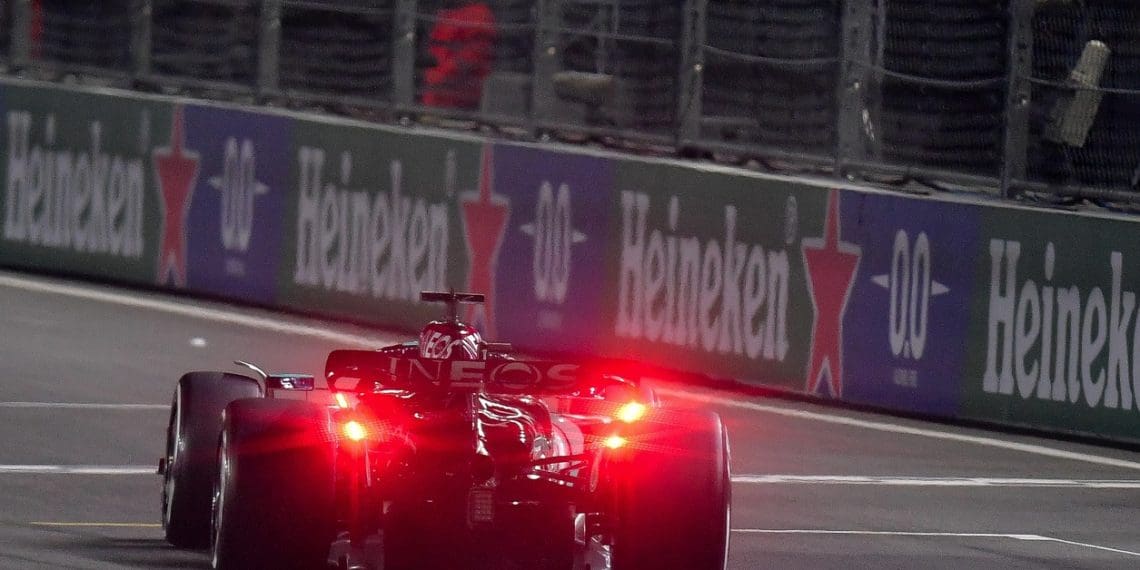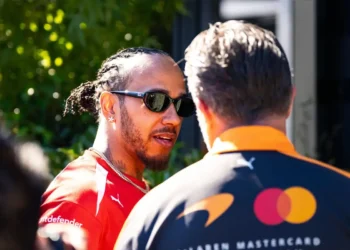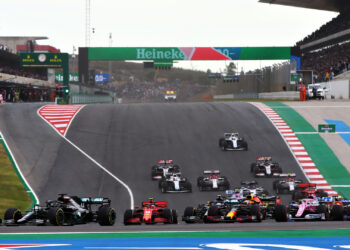F1’s Spectacular Second Half: A Glimpse of What Could Be
Formula 1 is experiencing a renaissance, with the second half of the season delivering breathtaking action that fans haven’t seen in years. Gone are the days of “background viewing”; races now demand full attention, as the sport thrives with unpredictable battles and rising stars.
If we exclude the first eleven races of the season, an alternate reality emerges:
- Lando Norris would lead the drivers’ standings with 193 points, a razor-thin margin over Max Verstappen (192) and Charles Leclerc (191).
- Oscar Piastri would also remain in the hunt with 179 points, making the title race a four-way thriller heading into the Abu Dhabi finale.
Meanwhile, the constructors’ championship would show McLaren narrowly ahead of Ferrari, with Mercedes leapfrogging Red Bull—a testament to how competitive the latter half of the season has been. Such scenarios rekindle memories of Formula 1’s historic golden years, where championships were hard-fought and unpredictable.
This dynamic energy bodes well for 2025, especially if teams like McLaren continue their upward trajectory. After all, earlier F1 World Championships regularly consisted of fewer than 12 Grands Prix, proving that short seasons packed with intense competition can deliver some of the most compelling racing.
The FIA’s Shadow Looms Large
While F1 dazzles on track, the shadow of the Fédération Internationale de l’Automobile (FIA) grows darker. Under President Mohammed Ben Sulayem, concerns about governance and overreach have escalated, with decisions that some describe as despotic threatening to overshadow the sport’s resurgence.
The FIA’s role as the governing body of Formula 1 has always been critical, but recent developments suggest a troubling consolidation of power:
- Erosion of democracy: Critics argue that decision-making is increasingly centralized in the FIA leadership, potentially sidelining stakeholders like teams, drivers, and fans.
- Sinister tendencies: Speculation about unilateral moves, such as writing off parts of the season to serve certain interests, raises alarms about fairness and transparency.
For a sport thriving on meritocracy, innovation, and competition, being tethered to a governing body accused of undermining those very principles is a precarious situation.
The Breakaway Question: Can F1 Go Solo?
Given Formula 1’s immense popularity and financial power, the question arises: Does F1 need the FIA anymore?
Formula 1, under the stewardship of Liberty Media, has shown remarkable competence in creating a global spectacle. From managing race logistics to engaging fans through digital innovations, F1 has arguably outgrown its reliance on the FIA. Breaking away could allow the sport to:
- Self-govern: Appoint its own stewards, race directors, and decision-making bodies to ensure fair and consistent rulings.
- Chart its own course: Establish rules and regulations tailored to its vision, avoiding conflicts with the FIA’s broader motorsport agenda.
- Maximize autonomy: Secure direct control over commercial and sporting decisions without external interference.
F1 already has the wealth, infrastructure, and global appeal to operate independently. Fans, teams, and sponsors would likely rally behind a self-regulated Formula 1 if it meant preserving the integrity of the sport.
The Risk of Staying the Course
The dangers of remaining under the current FIA regime are clear. If governance continues to deteriorate, the sport risks:
- Eroding trust among teams and drivers, potentially leading to factionalism or even boycotts.
- Alienating fans who value F1’s credibility and transparency.
- Stifling progress, as political maneuvering overshadows on-track competition.
Formula 1’s recent success has been a testament to its adaptability and resilience, but the threat posed by its governing body could undo years of progress.
What’s Next for F1?
The idea of Formula 1 breaking away from the FIA is no longer a far-fetched fantasy. As the sport thrives on track and faces challenges off it, the question becomes whether it is better served by forging its own path. The FIA’s role as the regulator of the sport has historically been vital, but its current trajectory could push Formula 1 to consider a bold step toward independence.
With fans clamoring for more of the excitement witnessed this season, F1’s leadership must prioritize preserving the spectacle and fairness that has defined the sport. Whether that means reforming the FIA or breaking away entirely remains to be seen—but one thing is certain: the time for complacency is over.










